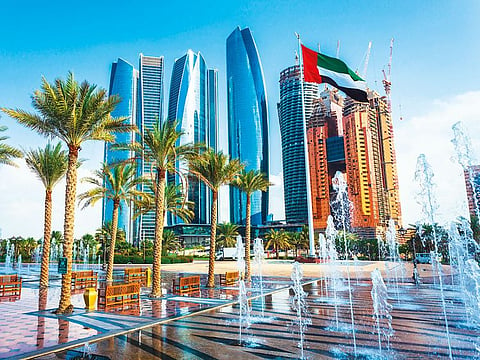UAE private sector activity continues to rise
Activity and new orders increase, but rates of expansion soften

Also In This Package
Dubai: The UAE’s non-oil private sector remained in growth territory at the start of the third quarter of the year, although there were signs of rates of expansion softening, according to the latest Purchasing Managers’ Index (PMI).
The UAE PMI report published by IHS Markit showed the headline PMI for July was 55.1. The reading was down from 57.7 in June, however, and the lowest since February.
Companies were at least partly reliant on price discounting to secure new orders, suggesting some weakness in underlying demand.Andrew Harker | Associate Director at IHS Markit
The report noted that employment continued to rise at only a marginal pace and in a number of cases, new business was only secured as a result of price discounting.
Survey data showed marked increases in business activity and new orders were registered in July, although in both cases rates of expansion continued to soften from recent highs.
“While the latest UAE PMI data pointed to ongoing rises in both business activity and new orders in July, rates of growth took a step back from those seen in the second quarter of the year. Once again, companies were at least partly reliant on price discounting to secure new orders, suggesting some weakness in underlying demand. They were helped in this regard by a lack of cost inflation in July,” said Andrew Harker, Associate Director at IHS Markit and author of the report.
While higher sales was a key factor behind growth of activity, panellists cited marketing activity as having supported overall workloads.
Where new orders expanded, respondents often mentioned improving market conditions. That said, there were also a number of reports that price discounting had been required in order to secure new work.
Output prices were reduced for the tenth successive month in July, with the pace of decline remaining modest. Non-oil companies were able to offer discounts thanks to a lack of upward pressure on input costs. Overall input prices were broadly unchanged, thereby ending a ten-month sequence of inflation. Both purchase prices and staff costs were little-changed during the month.
The report said, in July companies continued to show a reluctance to hire additional staff in July, despite rising activity requirements. Employment was up marginally for the fifth month running, but the vast majority of respondents left their staffing levels unchanged.
Backlogs of work were also up only slightly in July, and to the least extent in the current 31-month sequence of accumulation. Some panellists reported payment delays from customers, while others indicated that softer new order growth reduced pressure on capacity.
Rising new orders encouraged companies to increase both their purchasing activity and inventory holdings in July. In both cases, however, rates of expansion eased.




